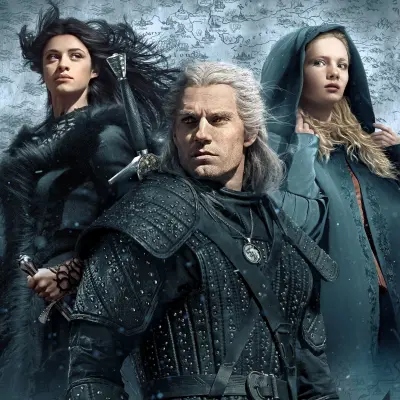The Witcher depicts sex better than most fantasy shows
-

"Fantasy movies, shows, video games, and books that are geared toward an adult audience tend to repeat the same mistakes when it comes to how they portray sexuality—exploiting female bodies while adhering to archaic notions of what sex was like in the Middle Ages in Europe (Hello, Game of Thrones.)," says Beth Elderkin. "But the latest fantasy saga, The Witcher, has given us a show that approaches fantasy sex in a more nuanced and, well, human way. When I watched the first season of The Witcher, the biggest surprise (other than the timey-wimey stuff) was how it handled sex and nude scenes. They were...pretty good. Not perfect, mind you, but better than we’ve seen in the past. It was refreshing because not only are we used to sexuality and exploitation going hand-in-hand in adult-focused fantasy sagas, but this was based on a book series and video game franchise that’s had its share of issues—whether it was author Andrzej Sapkowski’s love of describing female breasts or how Geralt’s sexual conquests were collectible cards in the first game. Fantasy stories based on European lore, epitomized by Lord of the Rings, take heavy inspiration from the medieval period. The problem with this is sometimes that means creators feel the need to hold onto the outdated standards of the time instead of...creating whatever world they want."
ALSO:
- The Witcher's Geralt is a hero for the gig economy: "Yes, Geralt of Rivia is a spell-casting monster-hunter in a world full of crazy fantasy stuff, and I am … well, not that," says Scott Meslow. "But Geralt is also basically just a fantasy-flavored version of a real-world figure you probably encounter every day: a freelancer, doing his best to survive in a highly competitive gig economy, stringing together a series of genuinely odd jobs as the world around him teeters on the brink of collapse. Geralt spends the entire first season of The Witcher underpaid, underappreciated, and underemployed, and none of his triumphs and failures do anything to change that. Who can relate?"
- The Witcher offers refreshingly complex female portrayals, unlike Game of Thrones: "The Witcher, for all its convoluted inanity, manages to buck expectations for female characters in a TV fantasy series simply by writing them the way men in the genre normally are: with individual, sometimes selfish, sometimes noble motivations," says Melissa Leon. "Renfri is consumed by her thirst for revenge against the sorcerer who destroyed her life; it’s Geralt’s attempt at meddling that keeps her from justice, a mistake he regrets for decades to come. (For all of Game of Thrones’ irresponsible insistence on depicting sexual assault onscreen, The Witcher also notably demonstrates how a show can establish the 'brutality' of its world without all that. Renfri is a rape survivor; we see how trauma has warped her and her psyche before she tells us, in her own words and her own time, what happened to her.)"
- The women on The Witcher get their due: "Women empowered by their own agendas, horribly flawed women who aren’t punished for these imperfections but allowed to grow into better people, and women actively seeking control over their bodies: These are the stories that fantasy trailblazers like Octavia Butler, Ursula K. Le Guin, and Alice B. Sheldon told years ago," says Joelle Monique. "Throughout time, women have been treated as vessels for men’s emotions, lineage, and reputation. Both The Witcher show and the Witcher books acknowledge and attempt to address these injustices, but the show does so without repeating the harmful depictions of women as sexual objects. Promisingly, it also joins a trend of women-led fantasy projects that suggest a brighter future."
- The Witcher's Jaskier is part of a long tradition of comic relief in fantasy series
- Netflix releases an interactive Witcher map, including a detailed timeline of events
TOPICS: The Witcher, Netflix, Nudity, Sex
More The Witcher on Primetimer:- "The concept of a man terrorizing the crew" - New details of The Witcher replacing Henry Cavill sends fans into disarray
- Liam Hemsworth Plays Coy in First Look at The Witcher Season 4
- Henry Cavill Will Be Tougher to Replace Than The Witcher Realizes
- Idris Elba Plays Hero in Apple's Real-Time Thriller Hijack
